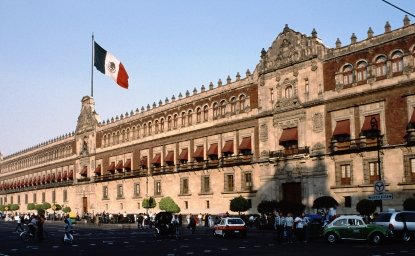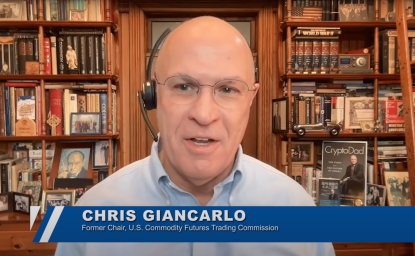In this first essay, I lay out the premises. Even the most basic ones are not obvious right now. Rage against the party system is so widespread, and so frequently justified, that it is appropriate to mention them again. Other ones are more controversial, but it is indispensable to make them all explicit.
1. The current party funding and audit system is a dangerous failure. It is the worst public investment in Mexico’s history. It had the valuable achievement of aiding the possibility of party alternation, but it did so at a brutal cost. It built ominous fortresses of prerogatives maintaining huge barriers to entry benefitting party leaderships, that, by design, require to distance themselves from the citizens or corrupt them in order to survive. Mexicans are deeply tired of this because corruption is generalized and palpable in nearly every public space. And this happens despite the existence of thousands of decent, hard-working public officials and political leaders that cover their nose and strive to plow the soil sunken in the manure of dirty money. If this system is not fundamentally changed, democracy itself is at risk.
2. In general, in this regard, the National Electoral Institute (INE) does its job well. They are not the problem. They do what they can with a law that condemns them to administer something absurd. A law that assumes, among other things, that it is feasible to audit multiple political campaigns in only a couple of weeks and with sufficient precision: campaigns being those paradigmatic efforts of rapid moves and decentralized actions that involve millions and millions of pesos spent by teams organized exclusively for this purpose. There is no point in assuming this, and among other things, that is why we end up discussing if the correct thing to do for the authorities is to impute the costs of precinct representatives, as happened in Coahuila, while illicit cash rivers are notoriously flowing outside the formal audit system.
3. Technology on its own is not going to solve the crucial problem of democracy, which consists in aggregating people’s preferences. Since long ago we know that it is impossible to add up people's preferences in a completely neutral way. There will always have to be rules to do so, and these rules will have implications on how power is distributed even if preference aggregation is done with the aid of AI and quantum computing. Let’s understand this and build rules and technology conducive to greater certainty, transparency, and citizen participation, but let's not pretend to replace politics with an app.
4. The point is not to make parties disappear. Nor to avoid discussion. Or to always achieve unified and massive forms of participation like the ones that have excited us in recent days in Mexico City. The point is to create ways for people to participate that get them excited to join, build, and commit to new ways of making our country better. But this will imply differences in the means and even goals desired for our community. Because we want to continue to be free. And we will disagree again, and that will require politics, discussion, and choosing among options. We do not want the dream of having a democracy to end. We just want public authority to feel ours, and not owned by those public bureaucracies of patronage and clientelism that the current political parties have become. The point is to take control of our own country as we took control of the rescue and rebuilding process. But we need to recognize that we want to avoid imposed solutions that tell us what to do and how to do it in the name of national unity and the superior goods of the country. We want a real democracy and a dignified space to build it.
5. In this real democracy, the optimum level of public funding for parties is not zero. Obviously it is far less that what they receive today through different means (fundamentally money for their ordinary activities, campaigns, research and training and cost-less access to radio and television), but it is not zero. This has nothing to do with the money the parties will obtain through other means that may be perverse, but rather with the fact that these are collective goods that takes effort and money to maintain. If there is no support for them, existing patronage or corporatist structures will have the advantage in party organizing activities. Some help is needed so that these citizen efforts which are political parties can see the light and be in basic conditions to ask for people’s support. But not much more. Below I detail what I have in mind.
6. There is no public or private funding mechanism that eliminates the incentives of candidates to spend everything they can to try to win an election. This is the truth and it will not change. There may be sanctions that contain these incentives. But not the current ones. These focus on the responsibility of parties and their candidates (through fines or election annulment after overspending beyond the allowed sealing), in other words, the agents that generate the demand for political support, the ones who ask for money. In our fragile justice system, every campaign generates the illusion that after winning no matter whatever it takes, when in power, one will be able to correct any mess done during the campaign. And on that expectation, candidates and their teams mortgage contracts right and left to whomever will sign. Because of this, the sanctions must be focused, primarily, not on the hopeful victor, but on the ones for whom the bet is riskier to begin with: whoever wants to give dirty money to a campaign. To them, the possible future contractors of the potential winner, the unions’ leaders or businessmen that expect improper perks and benefits from the next government, winning an election can be the deal of a lifetime, but they are not the ones that will decide if a promised contract will finally be granted or not; or what will happen when problems arise in the case of an investigation. They have more intrinsic risk. And in fact, they have other means of making a living other than their candidate winning the election. Therefore, the probability that sanctions for campaign irregularities work is much higher if they are focused on the supply side of political support. This also needs to be adjusted.
7. In parallel to the enormous funding that political parties receive, we have made it very difficult for new parties to form and compete in our elections, despite the recent reforms allowing for independent candidates. And of course, if we are going to give away huge perks, it is better that it is hard for new options to form. But in part, this is the reason that the current options are so recurrently bad. Because they can. Once the atrocious amounts of public funding are reduced, it will be necessary to decrease, systematically, the barriers to entry to the electoral ballot. In the rules to form new parties, in the number of signatures needed for independent candidacies, in the possibility that people can be reelected even if they abandon their current parties, etc.
8. Our party funding and audit system perverted the concept of “equity.” This euphemism was used back in the late nineties to avoid saying “we do not want the government to keep giving money to the PRI, nor that large businesses give money to the PAN, and we want someone to give money to the PRD.” Reality demonstrated that this euphemism never made any sense. Party finance regulation was ineffective in the year 2000 by the PAN and the PVEM with Amigos de Fox[1], and even worse with the PRI and the Pemexgate[2], and from then on. But in the name of that useless euphemism, today we continue perfecting public funding, prohibiting private funding, and attempting to defend campaign spending limits, which, by the way, when effectively respected, generate unfairness. But no one in competitive conditions truly complies with these norms; and this is the tale that never ends. In reality, thanks to this nonsensical euphemism about “equity,” everyone uses the public budget, at least in the form of public works promises, to fund themselves.
9. From all the norms being discussed, the queen of them all in this regard is the campaign spending limits one. The argument is that if everyone spends the same, nobody will have an advantage. But nothing is further from the truth than that. Because no one starts from the same point. The reality is that if everyone spends the same, and with the same efficiency, the best thing a campaign would do would be to reproduce the original starting point. And we know that the starting point, even if we supposed that the government’s spending in publicity of its policies was corrected, is favorable to the incumbent. Or to the older parties. Spending ceilings, whenever they are binding, only give advantages to whomever already has power. They only make sense under the assumption that we are talking about public money. But if money does not come from my taxes or from corrupt public works, but rather from transparent, small, democratic sources, why would we limit what a candidate can spend in an election? It could only be explained as a deterrent to her competitiveness.
10. Drug trafficking and organized crime will not be solved here. Through the party funding system, we cannot reduce the incentives a criminal may have to obtain a candidacy to a public position. But it would be really good if the funding system was not the cause behind illegal activities. With the excessive restrictions to private funding and the campaign spending ceilings, why would it be a surprise that there are tons of experts on illegal cash management in competitive campaigns? Those people that negotiate mark-ups in public works, false invoices, contract promises, and that build cash diffusion networks used in co-opting and patronage activities that are hard to monitor. And no, the solution is not to more strictly monitor them. The solution is that these activities need not to be hidden.
I will stop here with the premises. They are important because if we are in agreement on them, concrete solution proposals can be more readily perfected. I will detail them in a following note, but I can say in advance that they require a constitutional reform. An emergency decree or another exceptional approach are not sufficient. If the idea is only to finance the reconstruction process, there are other attractive alternatives to do so; a short-term solution would lose a great opportunity.
What needs to be recognized without any stridencies is the complete exhaustion of our current democracy. It implies working to put the control of our political fate in the hands of more people. It can be done.
The views expressed here are solely those of the author. This article was originally published on the Mexico Institute's 2018 Elections Guide.
[1] Amigos de Fox (Friends of Fox) was an organization intended to help Vicente Fox win the presidency in 2000 that essentially behaved like the equivalent of an American Super PAC.
[2] Pemexgate was the term coined to describe the misuse of public resources from Pemex that were diverted into the PRI’s presidential candidacy in 2000.
Author

Mexico Institute
The Mexico Institute seeks to improve understanding, communication, and cooperation between Mexico and the United States by promoting original research, encouraging public discussion, and proposing policy options for enhancing the bilateral relationship. A binational Advisory Board, chaired by Luis Téllez and Earl Anthony Wayne, oversees the work of the Mexico Institute. Read more

Explore More
Browse Insights & Analysis
The Mexico Institute's 2018 Elections Guide



